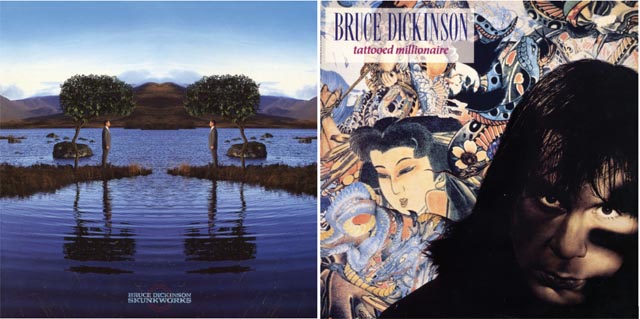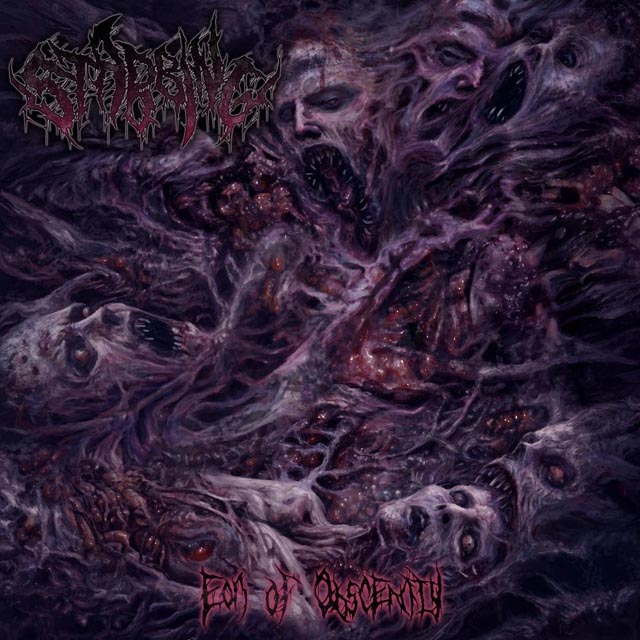Linkin Park had a prolific 2024. They released Papercuts, their singles collection featuring the unreleased track “Friendly Fire,” hired veteran rocker Emily Armstrong as their new co-lead vocalist, dropped a new album titled From Zero, and embarked on a world tour that returns to the States in April 2025. The release of a singles collection often signals a band about to head in a new direction—either resting on their laurels as a nostalgia act or shifting to a new musical tone. However, aside from replacing the late Chester Bennington with a female vocalist, Linkin Park has done neither. Instead, they’ve simply turned to a new chapter in the same book.
“Friendly Fire” begins with a haunting monologue by Chester Bennington:
“
Tell me the words I’ve forgotten/What we were fighting for/Staring right into the darkness/Through an empty open door.
..”
In the music video, his bandmates lounge in deep reflection, wearing somber expressions. The video itself comprises footage captured between 2015 and Linkin Park’s One More Light European Tour in 2017, subtly foreshadowing events to come.
An orchestral swell introduces the pre-chorus:
“Can’t put back what’sbeen broken/Can’t change the moment/We went too far.”
In February, the video’s director, Mark Fiore, shared that Mike Shinoda described the song as “looking into the distant past with a loved one and realizing that sometimes best intentions can still cause hurt.“ This sentiment is made all the more poignant by Bennington’s suicide in July 2017.
While “Friendly Fire” was shelved during the One More Light sessions, it was revisited and completed in 2020. It later found its place on Papercuts, with guitarist Brad Delson explaining:
“‘Friendly Fire’ was always one of our favorite songs from the One More Light sessions. Something about it wasn’t quite right, so as close as it got to the finish line, we chose to set it aside for later. When we started looking for an unreleased track to include on our greatest hits collection, I was blown away by the power of the song, the power of the storytelling, the power of the vocal, the sonic landscape. And I actually thought that it was closer than maybe we had realized at the time.
We got together to work on it and connect some of the missing pieces that, for whatever reason, hadn’t revealed themselves during the recording of One More Light. I can’t wait for people to hear it. It’s such a beautiful, compelling, heartbreaking, hopeful story, and it really resonates with me today.“
The song itself carries a weight that can only be fully appreciated with the hindsight of everything that has happened since 2017. The video’s footage—shots of the band huddled together, smiling, performing, and recording—interspersed with reflective moments without Chester Bennington make the experience far more emotionally resonant than it would have been before his passing.

Still, the band had its reasons for holding tracks like this back, as Delson noted:
“The best stuff is always the stuff we put on the record. There are some songs where we were like, ‘oh, this is really good,’ but it’s not better than the record. Some of it is like, a verse and chorus copied twice and that’s the second verse as well… it’s like half done, it’s not done.“
“Friendly Fire” may have benefitted from polishing a few lyrics, adding a verse or two, or introducing a prominent guitar melody. Yet it still succeeds, leaning on a bluesy synth backline and a light, hi-hat-heavy drum beat that accentuates the song’s melancholic tone. The true highlight is Chester’s post-chorus pronunciation of “Fire!” Delson elaborated in a behind-the-scenes video with Mike Shinoda in March:
“What I’m feeling is that our post-chorus, which is the ‘fire,’ that’s a post-chorus, however that almost feels like a chorus because it’s like the clearest kind of release. And it doesn’t happen a lot. So I know it’s how we make this song flow more clearly and also really to celebrate that part.”
If “Friendly Fire“ is truly the last new track to feature Chester Bennington, it’s a fitting farewell: unpolished but haunting, blunt, and emblematic of a chapter in Linkin Park’s history that has now come to a close.
In September, the band announced Emily Armstrong as their new co-lead vocalist. In an interview on The Zach Sang Show, Shinoda and Armstrong told the story of how she became co-lead vocalist. Armstrong, known for her work as the lead singer of Dead Sara began working with Mike Shinoda on a separate project in 2019. An impressed Shinoda made a Dead Sara Playlist after Armstrong started sitting in on sessions with Linkin Park. Of the playlist, Shinoda stated,
“These are songs that I know have a connection to our songs… if you hear these and you start thinking about One Step Closer and Waiting for the End…”
It won the rest of the band over. After hearing Armstrong’s lead vocals on a new track and backups on a few others, Creative Director Joe Hahn asked Shinoda if he thought that “Emily would just sing… all of [our] stuff?” Everything for Linkin Park’s next chapter with their new vocalist seemed to fall into place with Shinoda recalling,
“This dude’s a believer… the fact that he came to that conclusion before even I suggested it… was really a big deal.”
Going through her catalog, one could certainly hear the compatibility between Armstrong and Linkin Park. While the Dead Sara Playlist has not been made public, songs like “Weatherman” showcase Armstrong’s versatility between clean singing in upper registers and coarse, scratchy and aggressive hard-rock screams. Their cover of Nirvana’s “Heart Shaped Box” shows that she shares roots with Linkin Park in the Alternative Hard Rock genre, not to mention her vocals matching the tone of Cobain in an uncanny way that transcends the gender-swap. Her versatility and emotional delivery make her a natural fit for Linkin Park’s evolving sound.
From Zero
Coming in at a modest 31 minutes, the 11-song album is Linkin Park’s seventh studio album and first since 2017’s One More Light. The album’s title references the original name for Linkin Park, Xero. The music has an edge, with energy that ebbs and flows throughout. At the same time, the reductionist lyrics pick up where they left off, delivering a familiar barrage of ear-wormy, simplistic verses punctuated by powerful declarations.
The first real burst of emotion comes during the album’s lead single, “Heavy Weighs the Crown,” when Armstrong hits her first heavy scream at the song’s breakdown. If the listener was unsure of what the sound of the album as a whole would be, it’s made clear by the end of the second track that the hiatus and the addition of Armstrong have not changed the band’s timbre.
That’s not to say their sound is stagnant. Armstrong’s vocals emphasize heavier screams than much of her previous work. Her performance on “Casualty” invites comparisons to Alissa White-Gluz of Arch Enemy. While Shinoda adopts a more melodic tone in his rap verses, Armstrong delivers a desperate, resolute, and defiant performance—a sentiment that feels distinctly Chester Bennington-like.
“Overflow” follows with a more jazzy, fluid feel reminiscent of 311. Its dreamlike quality allows Armstrong to showcase her skillset, accentuating notes in the upper register. The middle-of-the-album offers a more introspective look at the boundaries the band is pushing. While new discoveries are explored, they draw inspiration from their roots with thrashy guitar riffs reminiscent of the band’s early albums, fused with the digital effects and sampling that became more prevalent in their later releases. These elements create a familiar sound with just enough innovation to keep fans engaged. By the end of “Two Faced,” the band is back in their peak turn-of-the-millennium form. The title itself is a dated insult more commonly used twenty years ago, yet it’s one of the album’s most hummable and memorable tracks. It feels like the band takes us on a journey: introducing the new with Armstrong, exploring limits with “Casualty” and “Overflow,” and beginning the return home with “Two Faced.”
“Stained” is a very standard Linkin Park song, with Shinoda’s legato rap verses floating over an upbeat backline. Armstrong’s chorus makes some interesting leaps, suggesting they had fun with this track, though it’s arguably the album’s most forgettable moment.
If “Stained” serves as a lull, “IGYEIH (I Gave You Everything I Have)” snaps the listener back to attention. Though the subject matter—a tumultuous relationship—is well-tread territory for Linkin Park, Armstrong’s raw outrage is staggering. The song feels like one long crescendo, with energetic peaks and valleys over its 3:30 runtime. It culminates in a Nirvana-esque chant of “Now I don’t need ya,” declaring self-sovereignty against both external and internal oppression.
The band fully embraces its new sound on “Good Things Go.” The melodic yet intense interplay between Shinoda and Armstrong creates a sonic landscape that defines the new era of Linkin Park. It’s still Linkin Park, but it can’t ever be what it was. While bittersweet, their voice remains strong, with much left to say and an audience eager to listen.
Linkin Park will continue their From Zero World Tour, which returns to North American Shores in Texas by April 2025 after stops in Saudi Arabia, Mexico, Japan, and Indonesia.

Sources:
https://linkinpedia.com/wiki/Friendly_Fire
https://www.setlist.fm/setlists/linkin-park-bd6bdae.html
https://linkinpark.com/tour
https://genius.com/artists/Linkin-park
https://youtu.be/tUU3aOvAdoM?si=t2_rwGYyAdK8KRl8












